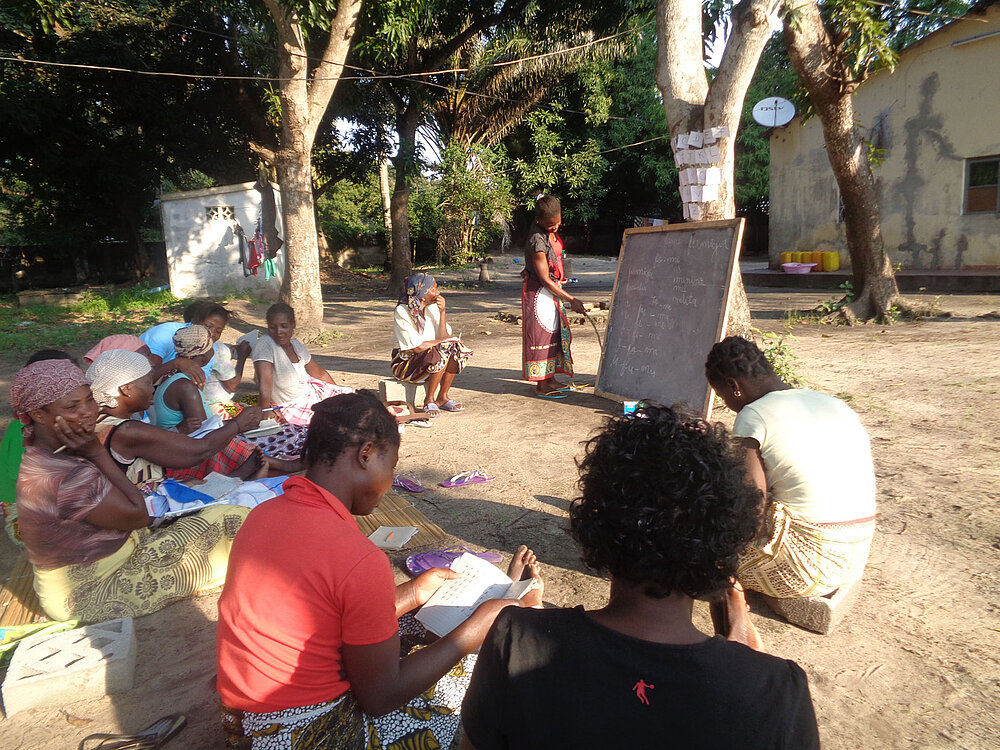In the project initiated by DVV International, students learn not only to read and write, but also how to open small businesses and invest in agriculture. The government of Mozambique aims to reduce the illiteracy rate to 41% by 2019.
Mobilisation for literacy and adult education in Mozambique is weak. To combat this problem, the German non-governmental organisation (NGO) DVV International is promoting basic education and developing income-generating activities for self-sustainability. Carlos Fortunato is a volunteer teacher working to teach students to read and write, and to acquire numeracy skills. “It was a great challenge to work with them, but their willpower to work was greater. Their openness and willingness allowed us to achieve results together,” he says. The Mozambican government wants to reduce the national illiteracy rate to 41% by 2019. After 40 years of independence, almost half of the Mozambican population (44.9%) are still illiterate.
With this in mind, DVV International introduced an integrated literacy project in two provinces – in Maputo, in the south of Mozambique, and Sofala, in the centre. The Country Director of DVV International, Augusto Macicame, said that DVV International not only wants to provide a minimum of education, “but also programmes that help people to be self-sustaining. Specifically, in these two provinces we have projects in the fields of agriculture and small businesses,” he explains.
Developing this integrated approach to literacy reduces dropout rates. Learners also feel motivated when they learn to use their mobile phones. “People are interested in learning how to send and read messages on their phones. But, above all, they want see improvements in their lives through learning new skills, such as in agriculture and running small businesses.” "People want see improvements in their lives through learning new skills", says Country Director of DVV International, Augusto Macicame (left).
Partnership
DVV International works in partnership with the Mozambican Ministry of Education and Human Development to support curriculum development “for the training of professional adult educators, to establish minimal criteria so that people interested in working in this field can achieve their goal,” says Macicame. The government, for its part, said that the programmes developed by DVV International have had the desired impacts. The Head of the Department of Organisation and School Management, David Uamusse, is confident looking forward to the next three years. “We have already developed the National Strategy for Literacy and Adult Education, and its respective implementation plan. We have developed a plan for training of trainers and capacity building of literacy facilitators and, at the moment, we are developing an Integrated Programme, which is responding to the challenges we are facing.”
The biggest concern at the moment is to develop programmes that are relevant to the lives and everyday realities of learners living in a variety of different contexts. “We are designing the programmes so that they are relevant to the population and respond to their needs and interests. That is to say, literacy and adult education that enables people to better integrate into society,” he adds. The provinces of Zambezia in the centre and Nampula in the north are the most populous, and have the most adult education centres in the country. However, they also have the highest rates of illiteracy.
This article was first published under the title “German NGO wants to reduce illiteracy rate in Mozambique” in Portuguese for Germany’s international broadcaster Deutsche Welle (DW). Read the original article here.




